Planning a successful social outing for a child with autism is all about understanding their unique needs. It’s important to choose the right venues and provide support throughout the experience. By assessing sensory preferences and selecting familiar environments, caregivers can really make a difference.
Preparing the child for potential challenges can lead to positive and enriching social interactions that promote independence and emotional growth. Let’s explore this together!
Navigating the world of social interactions can be particularly challenging for children with autism. Yet, social outings offer a unique opportunity for growth and connection! These experiences not only help in developing essential interpersonal skills but also foster independence and emotional resilience.
However, planning a successful outing requires careful consideration of each child's individual needs and preferences. So, how can caregivers effectively prepare their children for these enriching experiences while ensuring a supportive and enjoyable environment? Let’s explore this together!
A social outing provides a wonderful opportunity for individuals with autism to develop their interpersonal skills in real-world settings—an essential step toward fostering independence. At Rori Care, we’re dedicated to empowering your little one with the skills they need to navigate the world confidently, enhancing their communication and building friendships along the way.
When young individuals participate in community activities, they learn how to engage with others, understand interpersonal signals, and cultivate emotional control. Our trained therapists lead social skills group therapy sessions that further enrich these interactions and support caregiver education. Plus, by joining in on excursions, your child can experience new environments, boosting their adaptability and resilience.
Recognizing these benefits is the first step to organizing a successful social outing that is tailored to your young one's needs. Our compassionate clinical leadership team is committed to neurodiversity and the success of youth, and we’re here to help you every step of the way! Let’s explore this together!
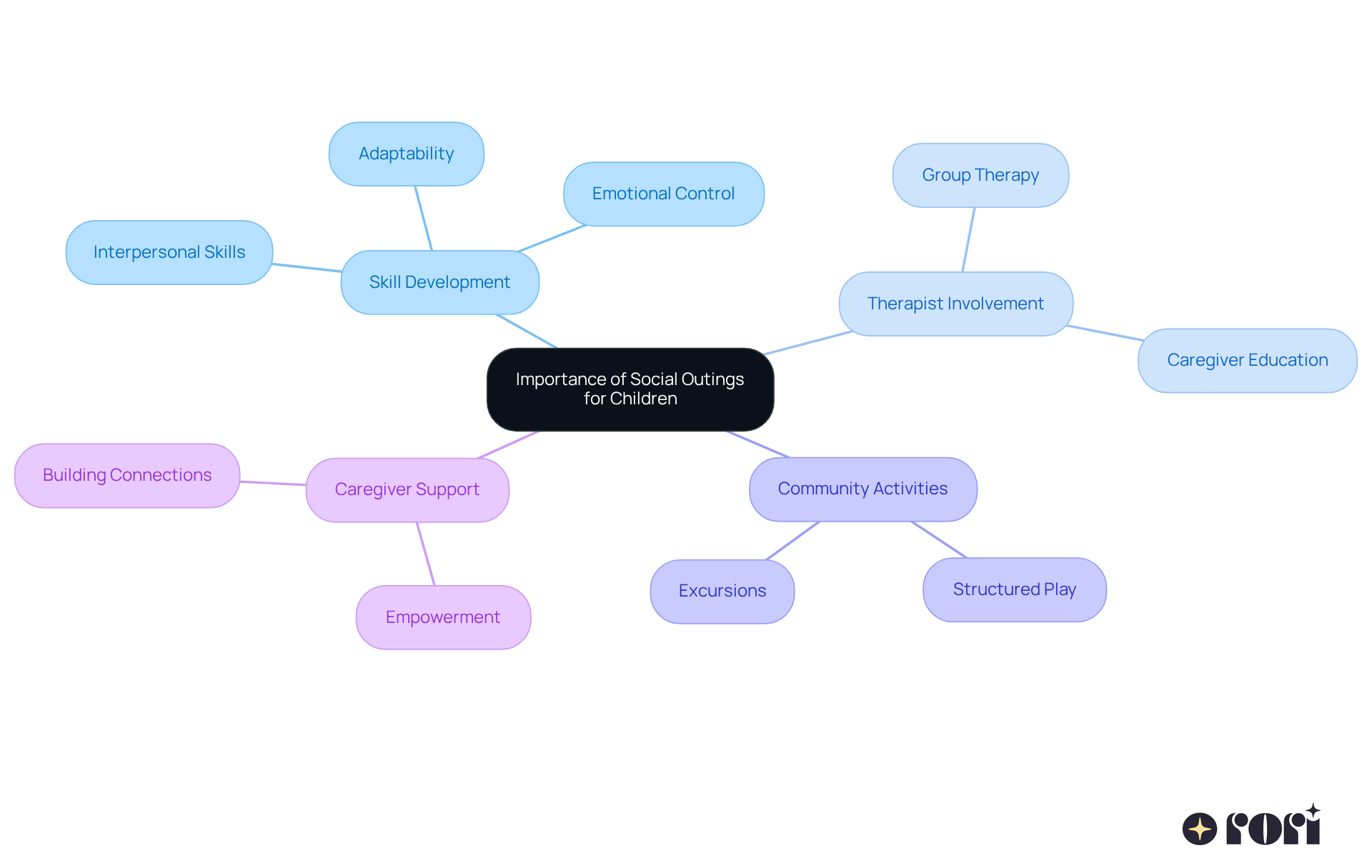
Start by chatting with your little one about the activities they love! Understanding their sensory preferences is super important; some kids might feel more comfortable in quieter spaces, while others thrive in lively environments. Keep an eye out for things that might trigger anxiety, like loud noises or big crowds, which can cause discomfort.
Also, take a moment to assess your child's social skills and their feelings during social outings with friends. This thorough evaluation will help you choose activities that are not just fun but also suitable, paving the way for a positive and rewarding experience. Let’s explore this together!

Choosing the right spot for your child’s outing is key to a fun experience! Familiar and comfortable places like parks, museums, or community centers can really boost your child’s enjoyment. These venues often have structured activities that cater to different interests, making them perfect for engaging experiences.
Look for sensory-friendly options, such as quiet rooms or specific times set aside for kids with sensory sensitivities. These can help ease anxiety and enhance comfort. For instance, many museums now offer sensory-friendly days, allowing young visitors to explore exhibits in a calmer atmosphere.
By picking a location that aligns with your child’s interests—be it a favorite playground or a special event related to their hobbies—you can create a memorable outing that fosters happiness and connection. Let’s explore this together!
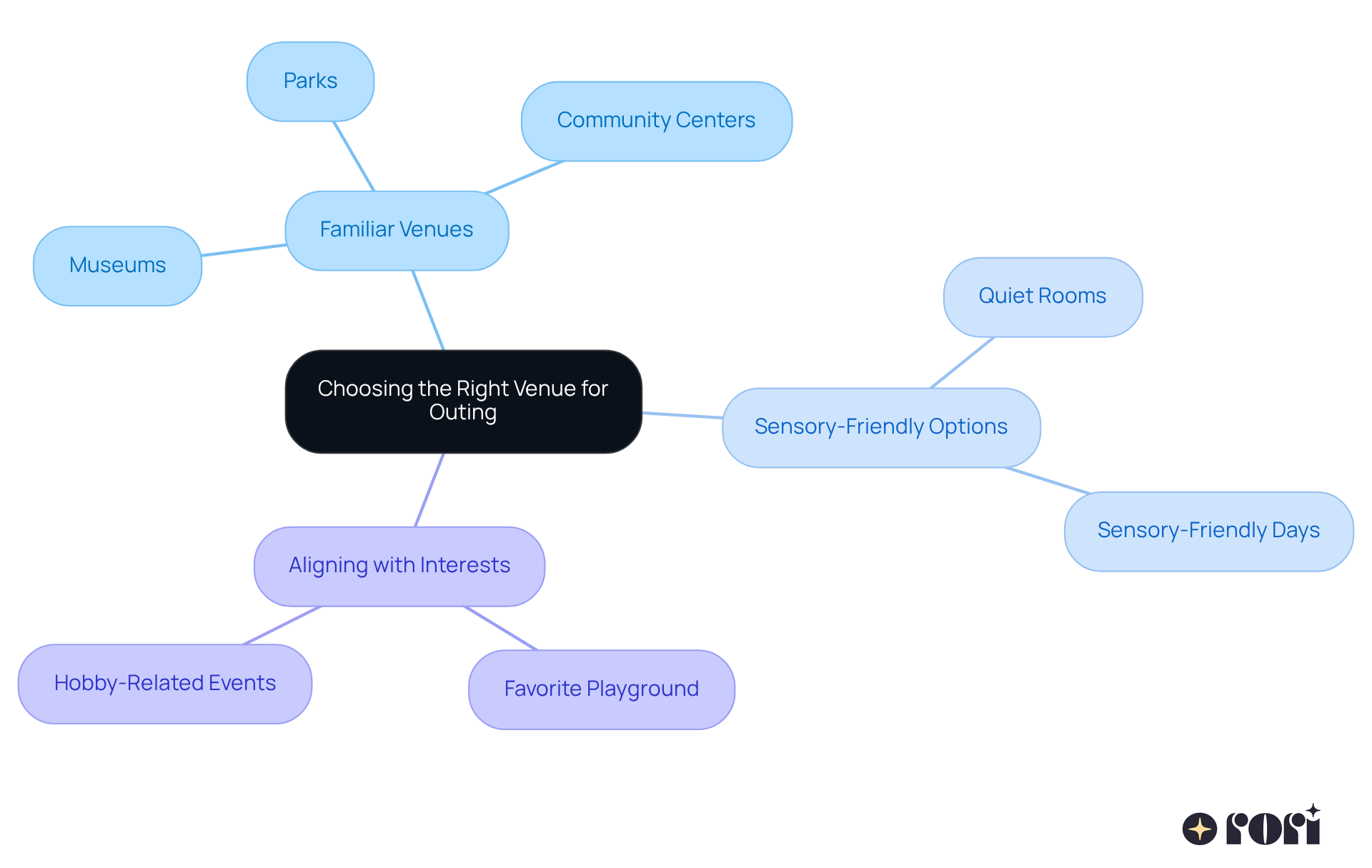
Think about how you'll get your little one to the venue. If they struggle with transitions, arriving early can really help them adjust to the new surroundings. Chat with your child about how you’ll travel—whether it’s driving, taking public transport, or walking—and if needed, practice the route together. Timing is key; aim for a moment when the venue isn’t too crowded to help reduce sensory overload.
Also, don’t forget to plan for breaks during the social outing. These little pauses can help your kid recharge and manage any overwhelming feelings. By using the ABA principles and strategies you’ve learned through caregiver education, you can provide the support they need and make choices that enhance their experience. Let’s ensure they feel empowered and supported throughout the event!
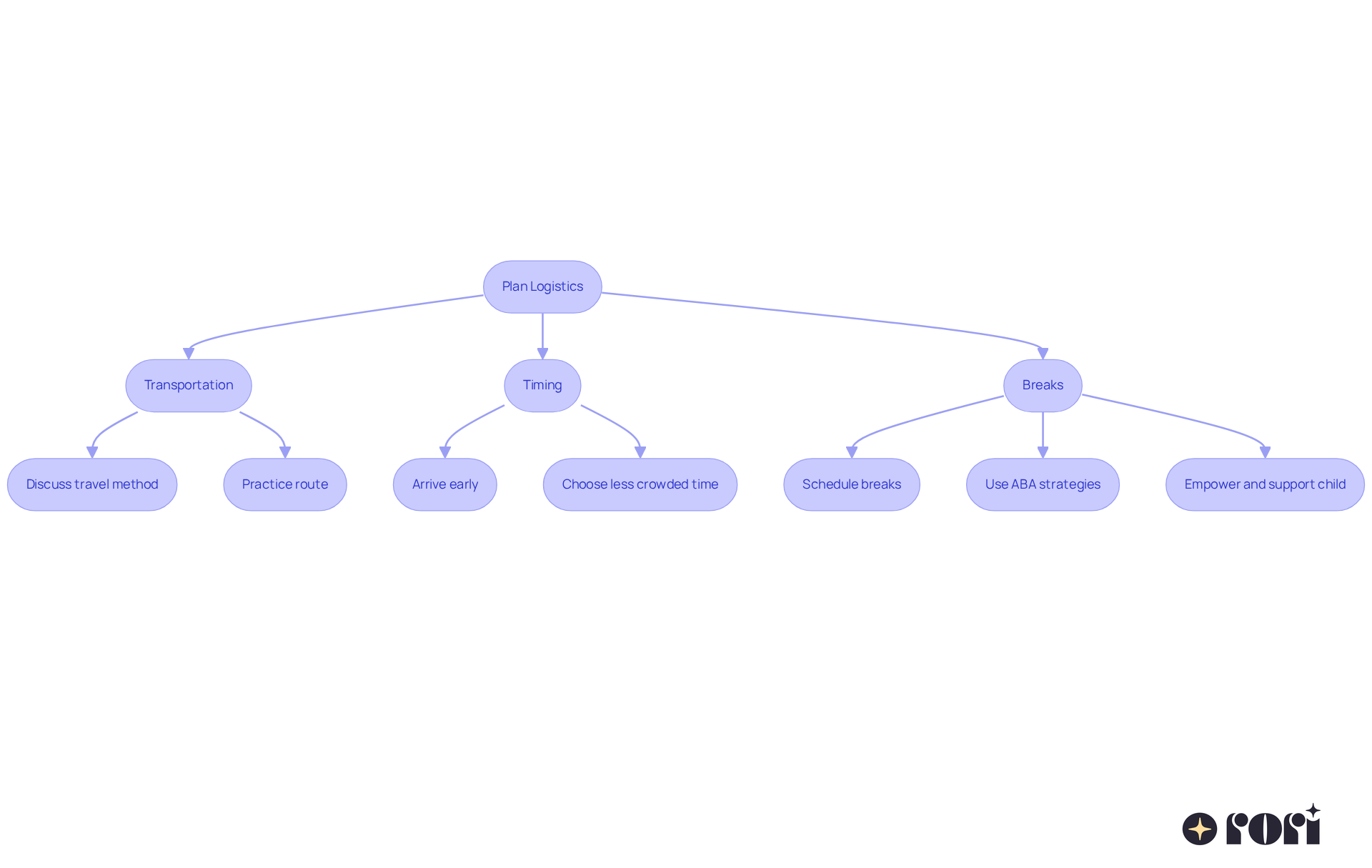
Before heading out, it’s important to chat with your child about what to expect. You can use fun visual aids, like storybooks or picture schedules, to show them what the day will look like. Did you know that role-playing different interactions can really help kids with autism feel more comfortable? It’s a great way for them to practice their responses and build confidence in social outings.
Encourage your little one to share any worries they might have, and work together to address those concerns. Offering comfort and exploring coping strategies—like deep breathing exercises or taking breaks—can really empower them. This helps nurture a sense of control and confidence as they get ready for the event. By using these strategies, you can create a supportive atmosphere that enhances your child’s experience and involvement in social outings and community activities. Let’s explore this together!
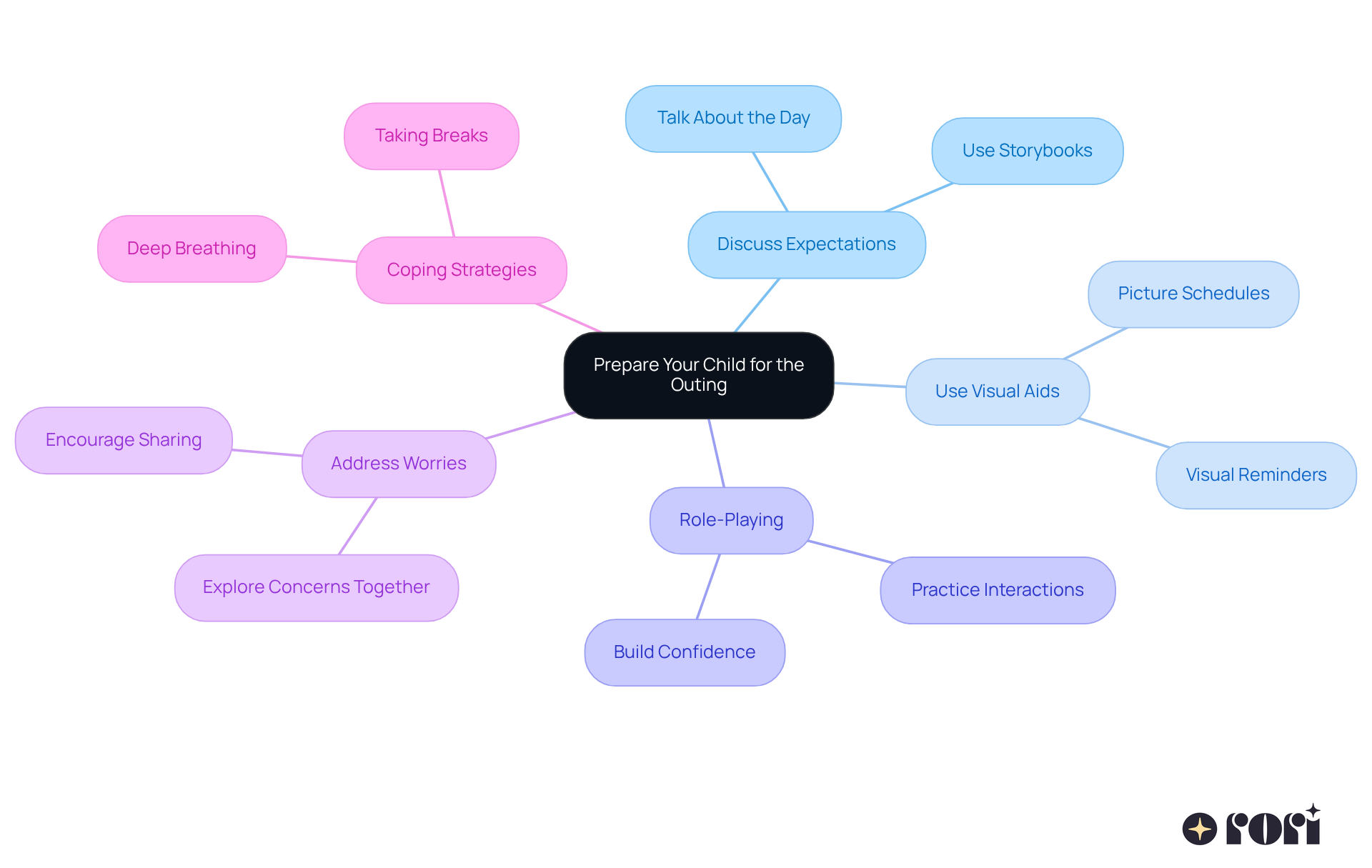
At social events, it’s so important to stay close to your little ones and be aware of what they need. By using the ABA principles you’ve learned, you can keep an eye on their behavior and step in if they seem a bit overwhelmed or anxious. This thoughtful approach helps you provide just the right support, complementing any professional help they may receive and promoting consistency in their experiences.
Encourage those positive interactions by gently nudging your child to connect with others, while also respecting their need for personal space. Celebrate those little wins—like when they start a conversation or try something new! These moments reinforce positive behavior and contribute to better outcomes. Your presence and support, along with the knowledge and skills you’ve gained, can truly enhance your child’s experience, making the outing not just enjoyable but also rewarding. Let’s explore this together and make every outing a great adventure for your family!
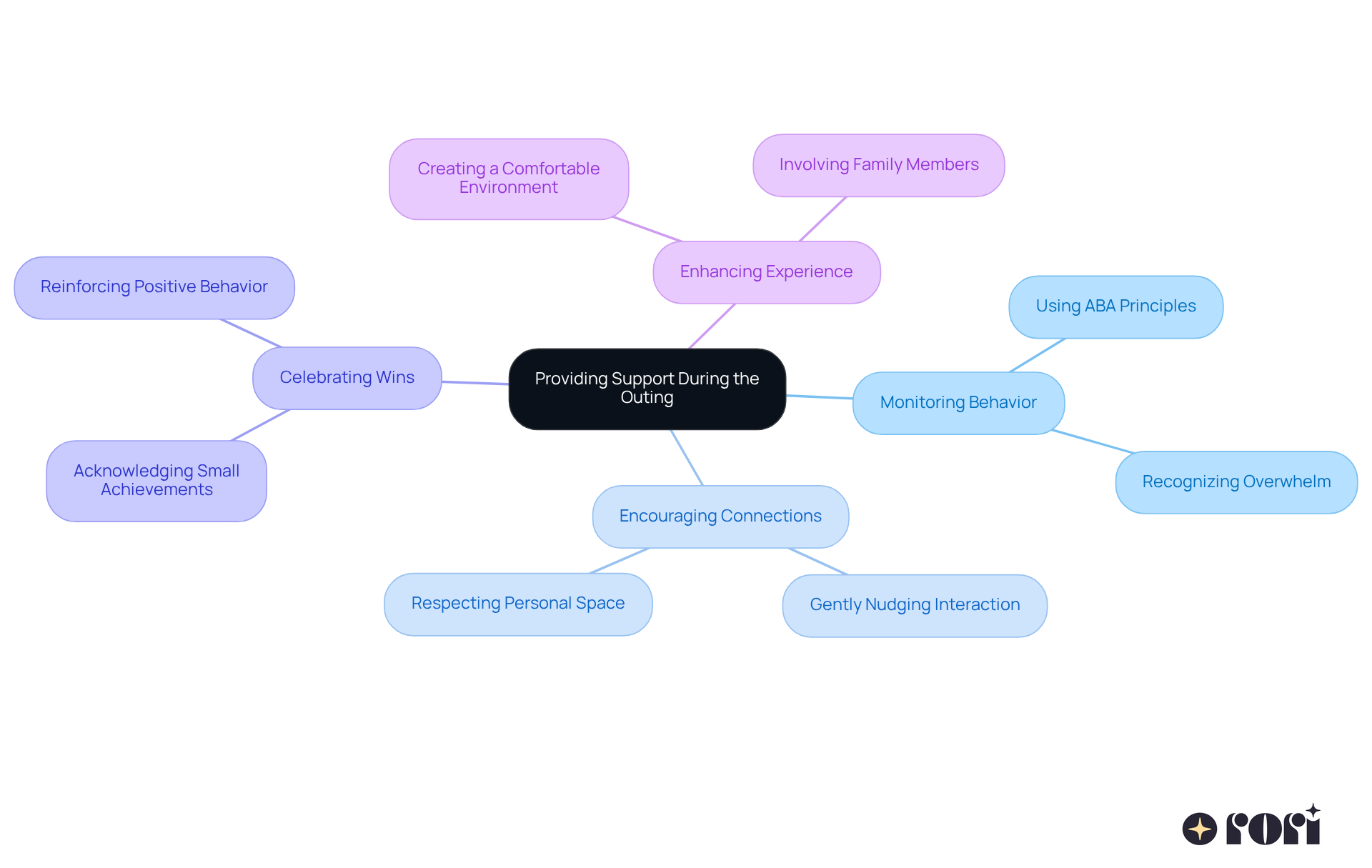
Planning social outings for children with autism goes beyond just creating enjoyable experiences; it’s a key part of nurturing their social skills and independence. By understanding each child's unique needs and preferences, caregivers can design outings that are not only fun but also enriching, helping children thrive in social settings.
It’s essential to assess your child's sensory preferences, choose suitable venues, and prepare them for the outing. Plus, providing ongoing support during the event makes a world of difference, ensuring that children feel secure and encouraged to interact with their peers. Every step in this process builds confidence and enhances social interactions, paving the way for meaningful connections.
Ultimately, the impact of social outings stretches beyond a day of fun; it plays a vital role in the overall development of children with autism. By embracing these opportunities, caregivers can help their children develop valuable skills that will benefit them throughout their lives. So, let’s prioritize these experiences together, making every outing a step toward greater independence and social success!
Why are social outings important for children with autism?
Social outings provide a valuable opportunity for children with autism to develop interpersonal skills in real-world settings, which is essential for fostering independence. They help enhance communication and build friendships.
What skills do children develop during community activities?
Children learn to engage with others, understand interpersonal signals, and cultivate emotional control during community activities.
How does Rori Care support children in developing social skills?
Rori Care offers social skills group therapy sessions led by trained therapists, which enrich interactions and support caregiver education.
What benefits do children gain from participating in excursions?
Participating in excursions allows children to experience new environments, boosting their adaptability and resilience.
How can parents assess their child's needs and preferences for social outings?
Parents should talk with their child about the activities they love, consider their sensory preferences, and identify any triggers of anxiety, such as loud noises or large crowds.
What should parents evaluate to ensure a positive experience during social outings?
Parents should assess their child's social skills and feelings during previous social outings with friends to choose suitable activities that will lead to a rewarding experience.